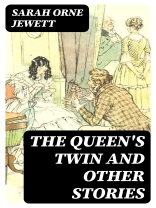In ‘The Queen’s Twin and Other Stories, ‘ Sarah Orne Jewett presents a collection of poignant narratives steeped in the rich local color of New England life. Jewett’s literary style is characterized by her attention to detail, subtle character development, and vivid evocations of rural settings. Each story captures the nuances of human relationships and the complexities of small-town existence, often weaving in themes of gender, class, and community dynamics. As a hallmark of 19th-century American literature, Jewett’s work provides profound insights into the lives of women at a time when their voices were often marginalized. Sarah Orne Jewett, a prominent figure in American realism and a key voice in the regionalist literary movement, drew inspiration from her own experiences growing up in coastal Maine. Her intimate knowledge of the landscape and its inhabitants enabled her to craft stories that resonate with authenticity and empathy. Jewett’s commitment to portraying the everyday lives of her characters reflects her deep understanding of social constructs and her desire to elevate the narratives of women and ordinary people. This collection is highly recommended for readers interested in the intricate tapestry of 19th-century American literature and the exploration of nuanced, relatable characters. Jewett’s ability to blend regionalism with universal themes of love, friendship, and resilience makes ‘The Queen’s Twin and Other Stories’ an essential read for anyone seeking a profound and nuanced exploration of human experiences.
Sobre o autor
Sarah Orne Jewett (1849–1909) was an American novelist and short story writer, hailed for her contributions to American literary regionalism. Jewett’s work is best characterized by its intimate depiction of New England’s landscape, dialect, and community. Hailing from South Berwick, Maine, her firsthand experience of the regional nuances imbues her works with authenticity and tender realism. Perhaps her most celebrated book is ‘The Country of the Pointed Firs’ (1896), reflecting her mastery in capturing the subtleties of rural life. ‘The Queen’s Twin and Other Stories’ (1899), another significant work, showcases Jewett’s talent for short fiction and her ability to explore complex characters within the constraints of the short story format. A contemporary of authors like Willa Cather, Jewett’s literary contributions are often studied within the context of 19th-century women’s writing and the evolution of American literature. Her stories frequently illuminate the lives of women in her time, addressing themes of independence, community, and the matrix of relationships that tie individuals to their home places. Though less well-known than some of her contemporaries, Jewett’s influence is recognized by those who value the rich tapestry of regional American writing.












